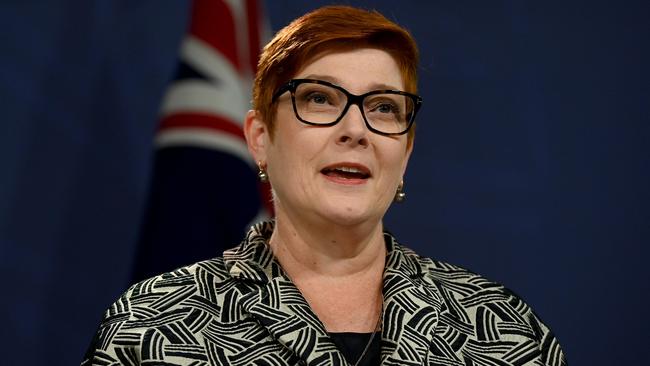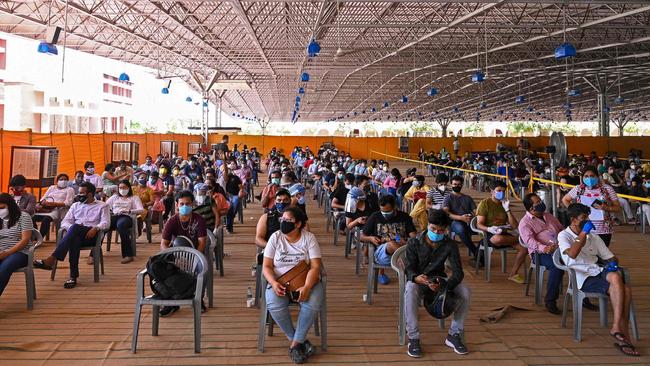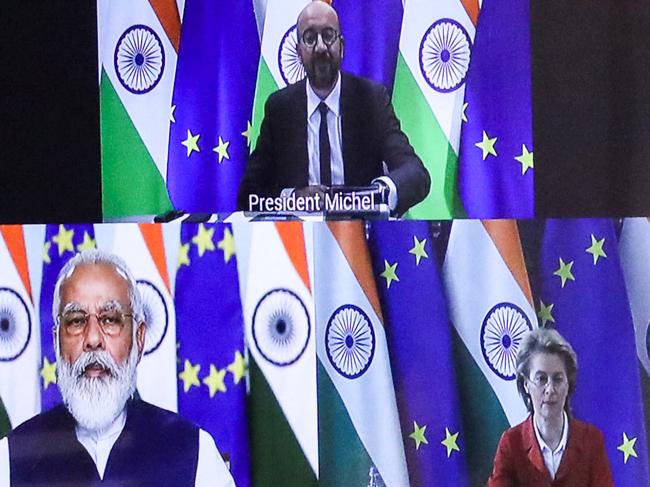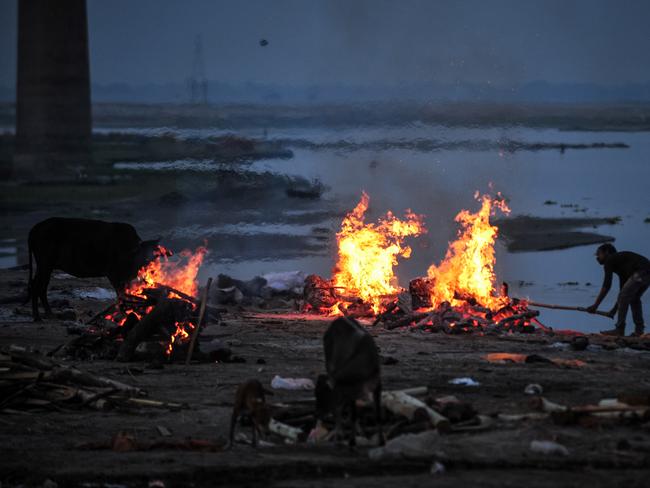COVID India crisis: Stranded Aussies invited on first flights out of India
Australians have been invited to take the first few repatriation flights out of Delhi to Darwin as the crisis in India rages on.
National
Don't miss out on the headlines from National. Followed categories will be added to My News.
Australians have been invited to take the first few repatriation flights out of Delhi to Darwin as the crisis in India rages on.
According to multiple posts on social media, Australians stuck in India registered with DFAT have been offered spots on flights from Friday May 14, 17 and 22.
It comes as bringing Aussies home from pandemic-stricken nations and helping exporters find new foreign markets in the face of crippling China bans will be a budget priority in the new financial year.
Foreign Minister Marise Payne has outlined the government’s push for further repatriation flights and increased consular services abroad with $176.3 million committed to safely returning COVID-19 stricken travellers.
She said Australia had also not forgotten its commitment to regional allies, maintaining its annual $4 billion Official Development Assistance (ODA), or foreign aid budget, with $1.44 billion of that for the Pacific and $1.01 billion for Southeast Asia.

Recognising the devastating impact of COVID-19 on our neighbours, the government will supplement the ODA with $319 million for temporary and targeted measures for vaccines and social impact programs in nations like East Timor and Papua New Guinea. $37.1 million over two years will be targeted specifically to support India, with essential medical supplies including ventilators and oxygen concentrators.
Together with quad partners, including the US, Australia has committed $100 million to provide one billion vaccines to the Indo-Pacific region by 2022.
Senator Payne revealed since the start of the pandemic, the Government has helped more than 45,400 Australians return on 500 flights, including over 18,600 people on 126 Government facilitated charters.

Funding has been set aside to facilitate further flights, notably from India, Senator Payne said.
More than 500,000 Australians have returned home since March 2020 in what has been the biggest consular operation in Australian history. The program will continue with new money for “a more responsive and modern consular service” including improved communications capabilities Senator Payne said.
She added while Australia had trade success, recording a surplus of $73 billion in 2020, up from $68 billion in 2019, more could be done, particularly in the farming sector.
“In the face of a difficult trading environment, we will work with Australian businesses to ensure exporters have access to the widest possible range of opportunities to expand and diversify their markets. This will help build a more resilient Australian economy that creates jobs for Australians.”
INDIAN PM WON’T ATTEND G7 IN PERSON
Indian Prime Minister Narendra Modi will not attend the G7 Summit in the UK in person, the Indian government said Tuesday, local time, as the country reels from a massive wave of coronavirus cases.
India was invited to the talks by Britain, which holds the rotating presidency of the organisation throughout 2021.
The decision to virtually appear at the leaders’ summit in Cornwall in southern England in June comes as India reported nearly 330,000 fresh cases and almost 3,900 new deaths on Monday.

It also follows a virus scare within India’s foreign ministry delegation in early May.
Foreign minister Subrahmanyam Jaishankar, who had travelled to Britain for G7 meetings with his counterparts, said then that he would avoid in-person meetings after a possible exposure to positive cases.
India has nearly 23 million COVID-19 cases.
The new surge in cases has ravaged major cities, including the capital New Delhi and financial hub Mumbai, pushing hospitals to breaking point and leading to severe shortages in oxygen and beds.
Many states across the country have imposed lockdowns, as well as curbs on movement and activities to try and reduce the spread of the virus.
But the pathogen is also spreading into rural areas, where the majority of the population lives, overwhelming local health centres but also crematoriums and cemeteries.

BODIES WASHING UP ON BANKS OF GANGES
On Monday, local time, officials said that as many as 45 bodies washed up on the banks of the Ganges river near the border of Bihar and Uttar Pradesh, two of India’s poorest states and home to an estimated 370 million people.
Some of the bodies were partially burned, according to media reports quoting other officials, suggesting they had not been properly cremated.
Locals suggested to AFP that people were immersing the bodies of relatives who had died of COVID-19 because they could not afford wood for funeral pyres or because crematoriums were overwhelmed.
Meanwhile, foreign aid has been pouring into India to alleviate the nation’s dire oxygen shortage as part of a huge international effort.
The urgent supplies — from the United States, Russia and the UK among others — include oxygen generators, face masks and vaccines.
The World Health Organisation said that a COVID-19 variant spreading in India appeared to be more contagious as it classified as being “of concern”.
Maria Van Kerkhove, the WHO’s lead on COVID-19, said early studies also showed that antibodies appeared to have less impact on the variant in laboratory studies.
Originally published as COVID India crisis: Stranded Aussies invited on first flights out of India




